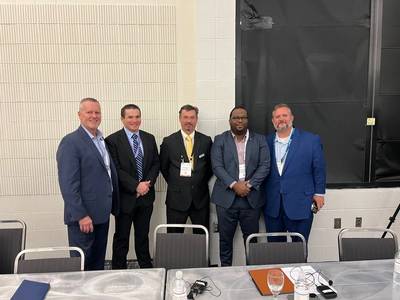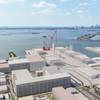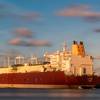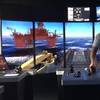OSV Owners Reap the Rewards of Data Sharing
A ‘Connected Future’ seminar, organized by Inmarsat in collaboration with Maritime Reporter & Engineering News and moderated by Greg Trauthwein, encapsulated the critical roles technology and data sharing play in enabling more efficient and sustainable workboat operations, and in improving conditions for crew.
Insights from leading Offshore Supply Vessel owners and operators capture the extent to which technology and data sharing are driving greater efficiency, sustainability and profitability in operations while enhancing working conditions for onboard personnel.
Harvey Gulf recently offered evidence of the gains it secured after introducing a digital platform to measure emissions from an offshore support vessel (OSV) capable of running on LNG, diesel, and a combination of LNG, diesel, and batteries.
“We get tons of data – the question is how to use it,” Dain Detillier, Executive Vice President – LNG Operations, Harvey Gulf International Marine told a recent Inmarsat Maritime ‘Connected Future’ seminar staged in collaboration with Maritime Reporter and moderated by Editor, Greg Trauthwein.
“You have to pinpoint your ultimate goal; what you want to achieve. That’s something we try to do – narrow our focus so we’re concentrating on smaller goals, and then we can expand from there,” said Detillier.
The preliminary remarks caught the mood of panellists of the seminar, which coincided with the International Workboat Show 2023 in New Orleans and went on to explore the gains operators are already realising.
Detillier explained that while OSVs spend most of their time in dynamic positioning mode, running multiple engines at low loads, digitalised emissions-monitoring had helped Harvey Gulf to identify opportunities to use supplementary battery power to run engines singly at energy efficient 80% loads. This, Detillier said, could decrease fuel consumption by around 30% and significantly reduce emissions as a result.
Fellow seminar panellist SEACOR Marine is also pursuing a data-driven decarbonisation strategy. Using a smart fleet management solution, the company transfers data to shore in real time to facilitate analysis and gain meaningful insights. Kyle Pemberton, Manager of Engineering, SEACOR, said that this has provided the basis for internal discussions about fuel efficiency that can “help crew to make better decisions”.
Pemberton also paraphrased ABS CEO Christopher J. Wiernicki to observe that, “Operational efficiency is your best fuel right now” – a mantra that shapes SEACOR’s approach to decarbonization. “Digitalization is high on our list of priorities – even ahead of alternative fuels,” he said. “If we do decide to adopt alternative fuels, we need to know how to use them efficiently.” Data, here, will be crucial.
For Edison Chouest Offshore (ECO), data analytics is a familiar practice. In 2022, the company established Marine Technologies to provide customers with complete vessel control solutions. Drawing on experience gained collecting and analysing data to improve its systems, ECO applied a similar data-driven approach to monitor emissions and support remote service across its fleet.
Joining the ‘Connected Future’ panel was Ron Welles, C-Comm Manager, Marine Technologies. He described the “centralization of management and organization” as a priority for the ECO fleet. Referring to a “central management system” that makes the same information available to every vessel, allowing personnel to learn from incidents in the fleet, he said: “We’re looking at how we can use this to cut down on administrative overheads, support information sharing, and get all the vessels running as a single unit.”
In his opening speech to the seminar, Eric Griffin, Vice President, Offshore Energy & Fishing, Inmarsat Maritime, described connectivity as “the oxygen that gives life to these digitalisation initiatives”. Yet the role of connectivity extends beyond enabling data-backed digitalisation and decarbonisation; it also helps companies to promote a happy, healthy working environment for mariners, he said.
With each of the panellists drawing on personal experience to stress the importance of fast and reliable crew internet, Welles recalled a fuel resupply run to Antarctica. “Before the mission, we received a call saying we couldn’t get crew on board unless we could provide them with the facility to keep in touch with their families,” he explained. “We installed Inmarsat connectivity on the vessel, and two and a half years later, this is one of the most successful jobs we’ve ever done in Antarctica.”
In a concluding recommendation, Welles added: “If you don’t provide crew with the means to connect, you’ll have a difficult time in today’s world.”
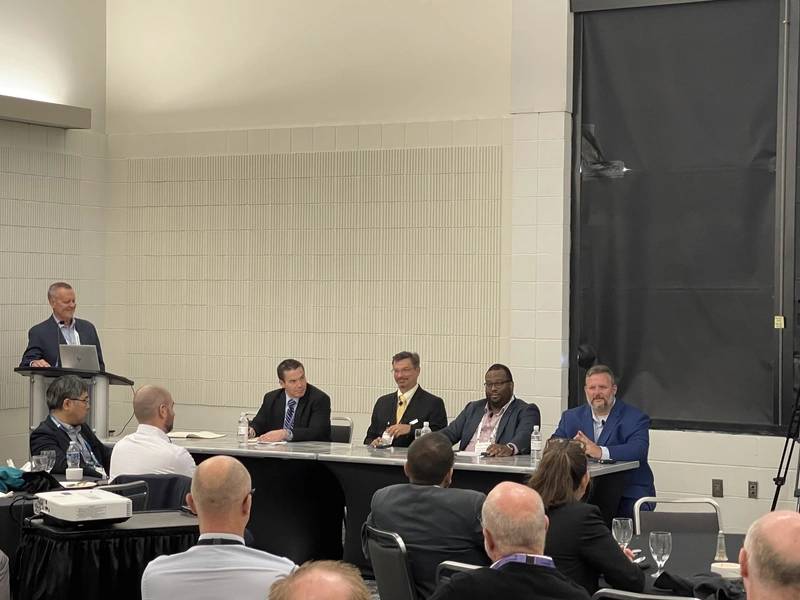 Image courtesy Inmarsat
Image courtesy Inmarsat



